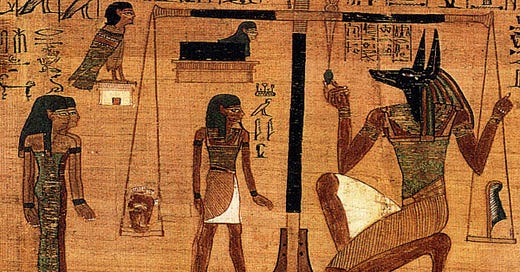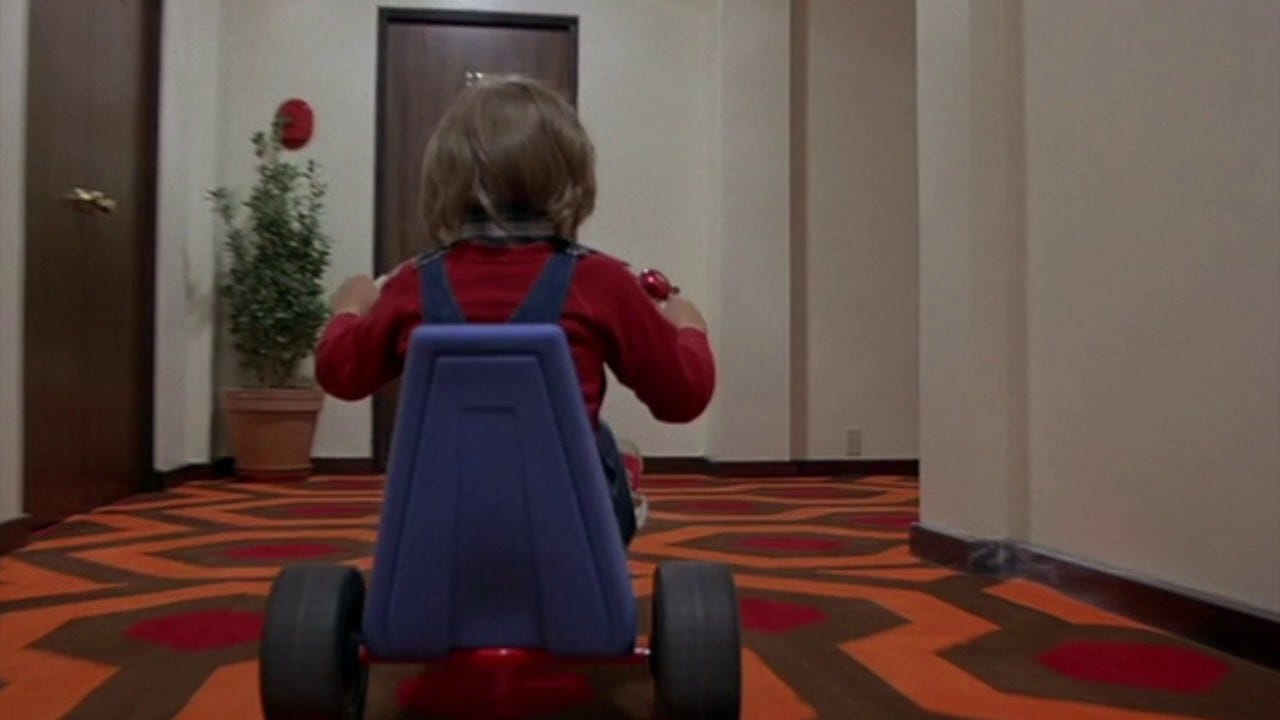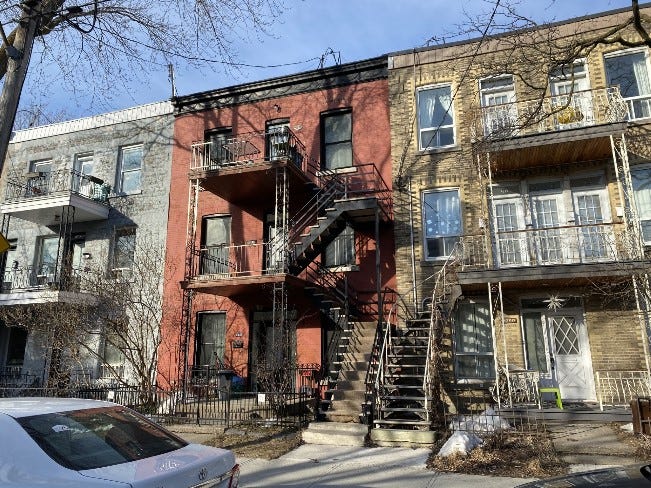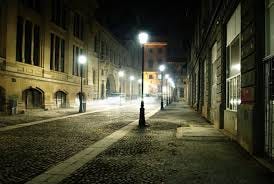The renovations to the 13th floor offices of Spieker & Associates were never to be completed, such were the vicissitudes of life at the premier personal injury practice in the city, continuous turnover, yet another new office location and the dissolute temperament of the firm’s operating minds, the “lion” and especially his “jackal”. The firm structure was in the form of the pyramid, with Derek Spieker, K.C. very much on top — sole owner and Pontifex Maximus — his generals and serfs below layered in degrees of importance. The office palm trees and assorted greenary were in the latter regard so in name only, morbid leaves now crisp and crumbling, residue of neglect or simple forgetting, raining to the stained carpet below in shades of funerial brown. If one were disposed to cast a glance into one of the rows of empty offices, there, behind stacks of black labelled, three ring binders, shoved indifferently to the side behind a further teetering stack of bankers’ boxes, propping up what had been — at the previous location near the waterfront — postered office decor and framed “art”, were the hardy tropical survivors, tolerant of the arid climate, their growth still reaching the upper limits of this fake interior world, touching with some trepidation the ceilings and dismal, flickering fluorescent lighting.
To read about the Carson case, click here
The human inhabitants of the firm when they could be found had by osmosis adopted the dress and manners suitable to transience and temporality, a permanent casual Friday, many preferring to work virtually from home to escape the depressing surroundings. On many day or evening, the offices appeared utterly abandoned — the evacuation having just occurred, the alarm sounded, fire, earthquate or terrorist attack, it made no difference, half filled cups of coffee, a half eaten vegan sandwich in a Starbucks wrapper discarded by the keyboard, sweater hanging precariously on the back of the swivel chair, almost imperceptively still in motion. The supply room was raided only hours before by the last survivors of the apocalypse or “dawn of the dead”, leaving little of use behind, the lights of the printer still flickered “on”, then bursting emphatically into magical activity, emitting the main enduring by-product of law: mountains of paper. There was the hum, the moan, the ejection, a pregnant pause, yet another document, this one 32 pages, hole punched and stapled, owner unknown.
Derek Spieker was a man of little more than 50, probably 49, but looking 20 years older than his actual age, stout, loud, red, bluff, behaving very much more the age of his appearance, talking the talk but lacking the imagination, or any consciousness of his many deficiencies, to walk the walk. He was fond of unashamedly peering out his corner office window at adjoining towers of the abysmal downtown, and calling out, for all to hear, “show time” when a woman semi-attired came within the “lion’s” view. So indifferent was he to his decrepitude that his firm’s main website photo, published to demonstrate to the injured masses the great “lion of the law”, working “diligently” on its behalf, was taken with his U-Boat sized binoculars still resting on his desk, this time for everyone else to see. It is unclear if anyone other than his “jackal” took notice. Caron certainly did, and was fond of mentioning it at every Christmas Party.
If one were riding a child’s tricycle along the 13th floor, and managed to avoid the black twins bekoning you to “play” with them, you would as you continued on your way become conscious of a sinister sound, at first barely audible, of someone keyboarding, an increasingly intense pecking, intersperced with the occasional “yes”, “come on, call”, and “you bastard”. If you were a curious child, and were inclined to put your cycle back into motion, resisting the temptations of room 237, you would, with some perseverance have uncovered the lair of the jackal, the only corner, or near corner, of the firm that maintained a certain continuous life, where humans were almost always to be found, an oasis of intellectual activity, laughter a consistent feature of this universe, and the words, “Do you have a second?” inscribed over the door, bekoning. This was the brain centre of Spieker & Associates. We are talking of course of JP’s office.
“Sam, I’m busy,” said JP, turning and pivoting his chair to call a pot side raise, playing online poker, as he often was after two water sized glasses of Alberta Premium.
“Do you have a minute?” said Sam, shutting the door behind her, but doing so in the extraordinary way women of the 20s and 30s variety have of doing so, and thus enclosing their favourites in a caress, which maneuvre requires the entirety of their bodies, cheek, breast, then hip, then thigh, then heal, finishing the process with a press from the palm of the hand. JP took notice as this particular mode of closing his office door by the female of the species was always followed by words of the greatest importance, sometimes truly so. He clicked, “skip next hand”.
“Have you reviewed my quantum assessment? I have a client MS Teams meeting in an hour?” said Sam imploringly (did I say “imploringly?), moving from door to desk along an imaginary s-shaped track, which terminus was the edge of JP’s great, great grandfather’s oak desk, Sam managing to cover with her legal skills the draft report he had tossed there, and JP’s ample green inked notations, corrections and revisions. All that JP could see after Sam was fully deposited, glancing down, were the words, “yours truly”.
“You’re sitting on it,” said JP without emotion, which Sam noticed with some distress. “What’s wrong?”
“Nothing’s wrong. I need my cufflink back?”
“What do you mean?”
“The gold one. I mean, you’re leaving the firm next week. I saw the email…. Sorry to see you go … but I need the cufflink back … the gold one, the one I left in your car.”
“Oh,” exclaimed Sam, standing up, broken, abandoned, in despair, the tear contained but visible.
“I mean, it’s my great uncle’s, I need it.” Holding up his left arm sleeve, cuffless, dangling.
“Ok",” said Sam turning and walking out with considerable, admirable, decorum. She returned a moment later, the cufflink having been wrapped with great attention, origami style, in paper, the care required effusive, completed with a level of love and attention JP could never, at least now, return.
“Here,” placing the tiny momento of times past at the top of his inbox.
“Thanks,” JP paused. “He’s a bastard you know.” Sam looked back and smiled this time without emotion.
JP recalled the time by the photocopier, the last time she asked for his “quantum assessment”. The alabaster skin of her neck, thin refined, veins pulsating, the blue eyes, hawk like, sandy brown shoulder length hair. All of this was bad enough. But the black choker. This was unfair. He placed his lips on hers as he had every right to do in the circumstances. She did not resist and reciprocated with enthusiasm. Spieker happened by at this inopportune moment on his rounds, and raised an eyebrow. Had he the slightest empathy, or ability to assess without his “jackal” his fellow man, he would have noted that the body possitioning of JP and Sam was not entirely consistent with a casual encounter by the photocopier to discuss a quantum assessment, and was almost certainly the result of a previous episode of passsionate love making, office style. Spieker thought nothing of the kind, nothing at all.
Spieker often spoke of the Carson case, the one in which JP’s cross examination of the Plaintiff and her key expert was so devastating that it resulted in a directed verdict, from Chief Justice Finckler no less. Spieker made no acknowledgment of JP’s part in the proceedings, which part was soon forgotten. To be clear, JP was utterly indifferent to whether Spieker claimed credit for his legal briefs, ligation advice and occasional interventions in the court room, or not. He was a contented jackal, providing his lion with what he needed, satiating himself on the carcasses he found lying about, of which there were many.
“You won’t believe it! No, guess!” exclaimed Spieker, bursting into JP’s office, interupting yet another hand, but managing to close the door on momentum alone, male style, without using any perceptible part of his body.
“Guess what?” JP signed.
“Remember that Carson case, you know, the drug addict?”
“Yes, and what?”
“Guess, I repeat myself, guess who I just bumped into?”
“Finckler? Did you tell him he’s a fat pig?”
“Yes, well no….” fumbling on three possible funny and intelligent responses and yet failing to retrieve any at all.
“… Ah …. Remember that gorgeous lady next to Carson, his daughter, remember … you know … remember? The blond? That golden haired doll?”
“And…?” JP’s body could be seen to heave, visibly, as if…. to JP’s way of thinking, obviously, anyone with any sensibilities would know Lucie wasn’t blond, but was more of a sandy blond, if not ginger. And she wasn’t the type of beauty the likes of a Spieker could ever appreciate, and if the likes of a Spieker referred lustfully to a woman like Lucie, it required a transposition by downgrade into something the low-likes of a Spieker could assimilate, which is not something JP was fond of entertaining, as he still imagined himself to be a being somewhat above worms and cockroaches and, as he experienced the world, Spieker’s comments were too horrific to contemplate, calling up the fake world of strip clubs, free porn and crude obsenities, that JP couldn’t countenance despite the degeneracy of his entourage and openess to most other forms of vice.
“Bumped into her downstairs, in the lobby.”
“Ah well, too bad you’re married. How’s her dad doing?”
“Yes, yes…. Oh right! Funny. You, know, I didn’t think to ask!” Turning abruptly to run down the hallway, yelling something unintelligible and unimportant. JP resumed his game as if the last minute had never occured. He was looking forward to lunch with Lucie.
JP as usual kept drinking and talking, becoming in his world more interesting as he did so. Certainly, he was more confident, but the curious thing about Lucie was her astonishment. “I am replacing all the plastic in my kitchen with metal, because metal lasts”. Lucie grabbed his hands over her California roll, in the most astonishing and affectionate manner. JP made no motion whatsoever, but smiled, tilting his head slightly. “Another round… and the bill.”
JP’s eyes opened from his gentle rest on the floor of the office boardroom. It was 2 am on a Tuesday. “You ready?” asked Spieker, standing above like a great, smiling, Herman-Goering-like teddy bear.
“Give me a minute … my office?” followed by a deprecatory grunt.
“Great!” said Spieker, reclining his hands in his coat pockets, looking over at the compact fridge in the corner. “Champaigne! why not!”
“Rye for me, thanks.”
“Ok!”
Spieker was never more effiminate than sitting in JP’s office, waiting for the jackal to speak his words of wisdom, the coded spells that opened the vault of riches. Spieker seemed to retreat into himself, a look of darkest fear visible, “would the words never come?”…. lips pursed, fumbling with some lighter document of no importance.
“Caron, damn we’re good, best firm in the city, they all know it. I have to ask myself, ‘How have I done what I have done? How do I do what I do and with such youthful enegy! Never tire of it you know,” downing the last of the Champaigne from the bottle, not bothering to fill his coffee cup, which had been standing in for fine crystal.
The jackal with knitted brows and intent face, deep to the task, his eyes not following the hand that reached out for the glass. The coincidence of legal brilliance with the alcohol reaching his lips was remarkable. JP smiled. “You’re problem is solved!”
“I’ll tell you Spieker how you do it. You pay me to help you, to add brilliance to bluster. That’s how you do it. You are a born front man, of the first rank. I prefer to work in the shadows where I have a free hand and fewer prying eyes. The less the law society knows of me the better. Spieker tried to suppress a deep knowing chuckle, only partly successfully, grunting in his peculiarly ridiculous way, “oh, ho, ho…” then winking at Caron in wholehearted agreement.
The clock struck 3 in the morning. “Will you pledge me a pretty witness?”
“I can’t do that,” said JP, “But I can pledge you one Chinese and two East Indian witnesses who will pretend to know what an oath is!”
“That will do!” they laughed.
The day was coldly looking in through the grimy windows when, like Belzebub, the window cleaner rose up from the depths of Hell on his line, smiled and did his duty. “Early bird,” JP thought to himself, smiling back at the puppet. Spieker was long gone. Checking his cell phone, it was 7 am. “I must have dosed off.”
The quainter corner where Carson lived in Montreal had been his parents’ home, making him a bit of an oditty, attached as he was to his ancestors, thinking often of them and their migrations in the years after the American Revolution. The front window of Carson’s office commanded a pleasant little vista that had a congenial air of retirement, coinciding well with Carson’s inability to find work despite the dismissal of the hate crime charges against him. That mattered little, everyone knew, as any accusation of “hate” was sufficient to end one’s career. It was fortunate he had been frugal and well positioned financially for retirement in any event. Standing on his veranda, looking out on his courtyard, he smiled to the rustling of the leaves in the autumn breeze, the sound of church organs, distant but familiar, and the beating of great drums from the factory, the makers of what no one knew or cared to ask.
“Caron! Caron! JP! JP! Come in, great to see you! What brings you here?”
JP was by now his usual morose self at Carson’s, not his better self, which he displayed most prominently in court or in the neighbouring bars and streets, repleat as they were with what he liked most, glorious anonimity. Carson was too familiar. When JP spoke, or was asked to speak, he spoke well, but without conviction. There was evidently something else on his mind. Carson’s affection for JP had its source in something other than the material world of utility, rather, mysterious, intangible, as if he were addressing another man, a ghost, or a man of his imagining. This love and joy was strangely, intensely, unrelenting. JP almost wanted it to end, burst it with a needle, if it weren’t obviously of great use to him.
Lucie’s room was the best room. In it were Lucie’s birds and flowers, a desk, and work table and box of watercolours. “Have I interupted?” asked JP. “JP! Wonderful to see you! Please, come in. I was painting.”
“What brings you here? My father’s case?”
“Oh no, that is all done with? The appeal was dismissed. You father is free and clear, thankfully, no more of those bastards. I just happened to be in the neighbourhood, lawyer stuff. You don’t mind?”
Lucie smiled, “Of course not!” rising, placing her paints and brushes, with all delicacy on the table, then pausing, thinking better of it, retrieving the brush, and adding a last stroke to the cottage roof, some black shading, leaning back and smiling. She looked at JP and giggled, intelligently.
Their discussions were always marked by intense feeling and intimacy, as if Lucie found everything JP said profound, original and thoroughly earthshattering. Lucie’s disposition to puff up the males of her entourage was thoroughly novel, a bit antique if not Asian, and not to be found in many European women outside a brief window during the dating sphere. It was not the kind of attention JP was capable of resisting, leaving him uniquely vulnerable to the cruel error and crueller consequences of misinterpreting his situation.
JP pulled out the bottle of rye from his desk drawer and made a motion to pour, stopped, rested back, capped the bottle and put it back, sliding the drawer closed. He was seeing Lucie and wanted his words to be convincing, which meant that what he said, and how he was behaving, had to have some relationship, some causal connection, and his words could not be an outright lie. No good speech can be made without the orator coming to believe the truth of what he is saying or, in other words, the first person an orator must persuade, if he is to be persuassive, is himself. JP understood this very well and took steps to ensure that he did indeed believe what he was about to say to Lucie was the truth, heartfelt, from the bottom of his dismal self, honest, loving, full of real feeling, and so it went, poorly as it turned out.
JP did not take well that Lucie was already “engaged” to a personal financial manager from Toronto and that she loved JP as a friend. She showed JP the man’s picture. “What an imp,” JP thought to himself. “Insult to injury.” It didn’t help that Lucie appeared at JP’s apartment on Fort at 7 pm on the following Friday, alone, to ask how he was doing and invited herself in with a six-pack of his favourite beer (he had lied). She touched him repeatedly on the shoulder, thigh, and once on the nose, as they spoke of poetry, legal war stories (of which JP was a literal Homer), classical music and, of course, of the good old days, conscious or not of the pain this causes to the failed or certainly, failing, suitor. JP took this initially as some pathetic, weak sign of “second thoughts” — but nothing of course came of it, nor did he push the issue very far. He was not spending good money after bad. He resisted trying to press his lips to hers as she turned back towards him, paused in his doorway, smiled, leaned in tantalizingly, then pulled back and said “goodnight”, for the last time as it turned out, the lights flickering — as they always do in such moments — preferring instead, as he listened to her lovely feet descending his stairs through the crack in the door left ajar, to retrieve that bottle of rye, smile, and resume his Bacchanalian propensities as if Lucie had never existed at all. He never thought of her again and took pleasure in the fact he never did.
JP awoke, as he often did, momentorily, location unknown. Reconciling himself with the world, he bid his adieu to his ghosts at the Auberge, to his favourite Irish pianist, still pecking out her favourite tune, paid his tab and set out on his way. Three times he checked his wallet to ensure he had retrieved his card. Three times he determined that he had. And three times he forgot what he had just determined. Ste-Catherine Street was friendly to its ghostly inhabitants of which JP was a welcome, and familiar, member. He thought to himself, more often than he was willing, ever, to confess to the members of his clan, that for those of the mixed races of his species, of which he was a most conscious member, there was no heaven, only the prospect of Purgatory. Purgatory to him seemed like Paradise, relatively speaking, and he thought of it often. He smiled, nodded and agreed with the thought, he shared only with himself.
Montreal at 3 am was a favourite time for JP, a place where the portal between universes could be transvered quite by accident, by pure happenstance. The neon signs of bars and clubs still shown, swinging in the gusts. A mist clung to the ground, swirling around the bases of old brick buildings and modern glass storefronts, kicking up leaves, shadows obscuring alleys where indistinct shapes seemed to lurk, just out of sight. The glow of streetlights dimed, swallowed by the oppressive darkness, and some bulbs buzzed and stuttered, struggling to maintain life. A faint, unplaceable smell—like damp stone and something sour—lingered in the air.
In the distance, a lone figure shuffled past, head down, footsteps echoing loudly in the stillness. Then gone. A stray black cat darted across the road, its eyes glinting. The sense of being watched was unshakable, and JP tried without success to shake it off. Something was amiss. There were footsteps, distant, but of a particular character that made them resonate. It seemed to JP as if the city itself were holding its breath, waiting for something unspeakable to emerge from the shadows of the shuttered theaters or boarded-up storefronts.
“There. Again.” JP noted that his steps were producing an echo, a perfect one. But that was no echo. He turned back and there he was. No question. He was being followed, no doubt. The figure made no pretense to hide or conceal himself. He very much wanted to be seen. As JP had stopped, so had he. The figure beneath a street lamp was perfectly illuminated. He was chalky white, hair grey, flat eared, hairline receding, wearing a shabby looking knee-length trench-coat that looked like it had been pulled out from under his mattress. He was small in statute but stood with supreme confidence — something that impressed JP and made him smile. For a painful ten seconds, which felt like an eternity, JP stared back at this specter, puffing up his shoulders to relieve some of the tension. ‘Old chalk face’ just stared back.
“Well, that’s interesting,” JP thought to himself. He had never been tailed before.
JP turned and resumed his trek back to his flat. The footsteps behind resumed in perfect unison. After reassuring himself the man was pacing, not gaining, JP elected to make a sharp left, running across the street into the back alley, behind his place. He then turned back, and there he was: ‘Chalk Face’ stood looking down the alley but, as JP had correctly anticipated, he did not follow as to do so would deprive him of the street lighting. He evidently wanted to be seen, not confronted in any serious way.
“Can I do something for you?” JP called out. “Who are you?” stated with volume but controlled calmness.
The man remained emotionless, staring back for yet another painfully long time. He did not respond. His point had been made evidently. He then turned matter-of-factly and, slowly, walked away, incredibly slowly, as if out walking his imaginary poodle.
The jackal was for that moment the prey, running, stumbling, tripping, no place to hide, through the mosquito infested woods of southern Ontario, Hugh Haig, JP was sure, was close behind, his favourite shotgun in hand, vengeance on his mind. The humidity was thick enough to stop the shot gun blast that burst out, shattering the silence, but doing no harm. JP turned back and yelled! “Marceau!” He need not have bothered. He was alone, Hugh having apparently lost interest.
The pond was no place any sane person would repose, two feet of water covering three feet of slimy, rotting, decaying mud. As he approached the water’s edge a cascade of leopard and tiger frogs leapt ahead of him into the infected water, the buzz of blood-sucking insects deafening. This wasn’t the place one would expect to find, on a summer Saturday, or any day …. three lovely ladies, all in their early 20s, by their appearance and playful chirping: one blond, one red headed and one raven haired, immersed up to their shoulder blades, who had apparently chosen this gloomy, dreadful place to go for a little dip.
“Come join us JP!”
“How do you know my name?”
“Come join us JP!”
“Who are you?”
Nanuk’s barking broke the spell. She was JP’s favourite dog, a black lab and shepherd mix. She was not pleased and fired off a ferocious tirade of barking, so unlike her otherwise gentle, submissive, self. Her sister Anik, also black as night, and somewhat more aggressive, soon joined the chorus with ravenous pleasure. The girls drifted out in perfect silence towards the centre of the black pool, lowering themselves to their chins but maintaining their gaze.
'“You’re right dammit! Let’s get the Hell out of here!” the three tearing into the brush, JP waving a hand in the air without looking back, a parting gesture to the three sisters. The crush of brush beneath his feet was deafening — but he would swear, years later, he could still hear three distinct voices as he fled, but was unable to make out the words. As much as he tried, in the dead of night or in his dreams, he was never able to make out a one. That didn’t matter now. Not for the last time, the jackal had made his escape.
This is a work of fiction. Although its form, content and narrative may at times suggest real people, real documents and records, autobiography or that the work is historical non-fiction, it is a product of the imagination. Space and time have been rearranged to suit the convenience of the book, and with the exception of public figures, any resemblance to persons living or dead is entirely coincidental. The opinions expressed are those of the characters and should not be confused with the author’s.










